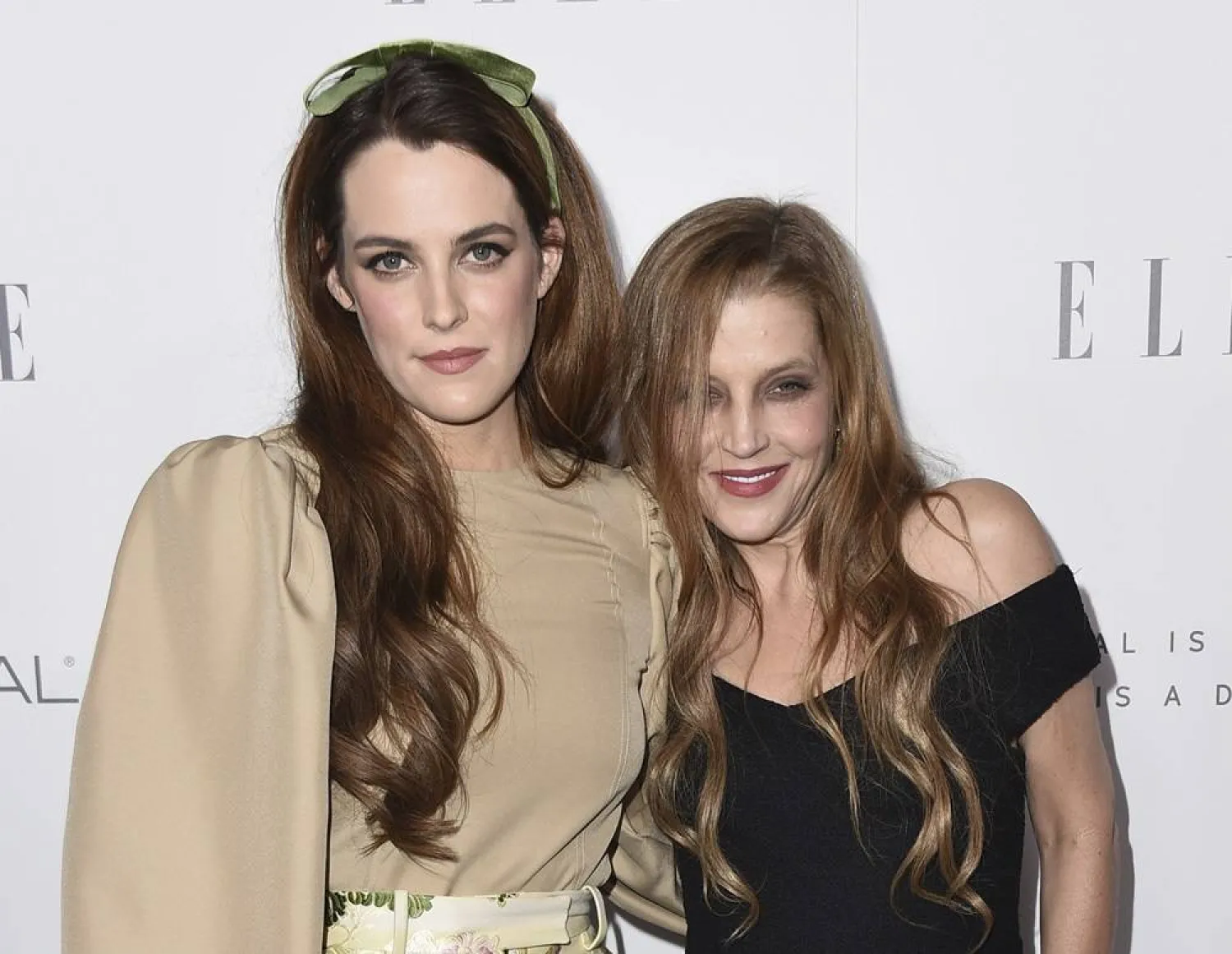Riley Keough was quick to agree to help complete her mother’s memoir. She thought they’d write it together, reflecting on her extraordinary upbringing and life, but it became a much greater responsibility after Lisa Marie Presley's sudden death in 2023.
Finishing the task her mother — the only child of Elvis and Priscilla Presley and a recording artist in her own right — had started years earlier elicited "all kinds of emotions," Keough said in an interview with The Associated Press ahead of the book’s release Tuesday.
"It just felt like a kind of a duty that I had to complete for her," Keough said. "I’m just happy that it’s done and that it’ll be in the world and there for people to read."
"From Here to the Great Unknown" is named in a nod to the moving lyrics of Presley’s "Where No One Stands Alone," a song Lisa Marie recorded as a duet with her father over 50 years after he first released it and over 40 years after his death.
The book touches on themes of "love and loss and grief and mothers and daughters and addiction," Keough said, adding it was conceived as a way for Lisa Marie to tell her story in her own words and connect with others.
Much of the book is indeed in Lisa Marie’s words, as Keough faithfully listened to recordings of her mother recounting memories and experiences both big and small. Lisa Marie wrote openly about the day her father died, her relationship with her mother, her marriage to Michael Jackson, her struggles with addiction and her son Benjamin’s death in 2020, among many other parts of her life.
Although Lisa Marie's life had been tabloid fodder since days after her birth, her memoir details intimate moments at Graceland, including how she feared for Presley's health as a young girl. In the chapter titled "He's Gone," she wrote that as a child, she often worried about her father dying and even wrote a poem with the line "I hope my daddy doesn't die."
She also wrote that Graceland became a "free-for-all" the day of Presley's death in 1977, with those at the house taking jewelry and personal items "before he was even pronounced dead."
Lisa Marie's frank writing extends into the section focused on her headline-making marriage to Jackson from 1994 to 1996. She wrote that Jackson confessed his love for her while she was still married to Keough, and that him wanting to have children with her, along with his increasing reliance on prescription medications, is what fractured their relationship.
Keough said hearing her mother’s voice in the recordings was at times "heartbreaking," but she enjoyed listening to happy memories, like how her parents met and fell in love. Keough is one of two children Lisa Marie had with her first husband, musician Danny Keough, along with their late son Benjamin.
"It makes me want to tell everyone to talk to their parents and record them telling all the stories about how they met and all these things because it’s just very cool to have," she said.
Keough’s role was to fill in parts of Lisa Marie’s story that she hadn’t gotten to before her death in January 2023 from a small bowel obstruction caused by bariatric surgery she had years prior. Some of those gaps included lighter moments and happy memories from her mother’s adult life.
"Until my mom’s addiction, really, which was when I was 25, I think we would all say that we had a really beautiful and exceptionally lucky and wonderful life," Keough said. "I wouldn’t define our lives, collectively, as a tragedy. I think that there is so much more."
And while those funnier, lighthearted moments, like Lisa Marie zipping through Graceland on her golf cart and Keough playing hooky from school to hang out with her mother, are detailed throughout the book, Keough said Lisa Marie wanted to write about grief and about the loss of her son.
Writing about her experience grieving her brother and detailing his death by suicide "wasn’t something that came super naturally" to Keough, but she said she knew her mother wouldn’t have shied away from it. Lisa Marie wrote that she wanted to honor her son by sparking frank conversations about suicide, addiction and mental health.
"How do I heal?" Lisa Marie writes in the book. "By helping people."
For Keough, much of her life now has revolved around learning to live with grief and cope with the monumental losses she’s faced.
"My last four years have just been grief, like so much grief. But it’s just something that I walk around with. You just have a broken heart, and that’s just the way it is, and you just learn to live with these holes and the sadness and the pain and the love and the yearning and the missing and the confusion and all of it," Keough said. "It’s very complicated. I think that you just have to try and allow it to be there."
While being the daughter of the King of Rock & Roll and much of Lisa Marie's life consisted of singular experiences, but Keough said all her mother wanted through her memoir to "connect with people on a human level.
"Her goal was to tell her story so that people could relate and feel less alone in the world, which is why I think we tell stories," Keough said. "So, that’s my goal."









